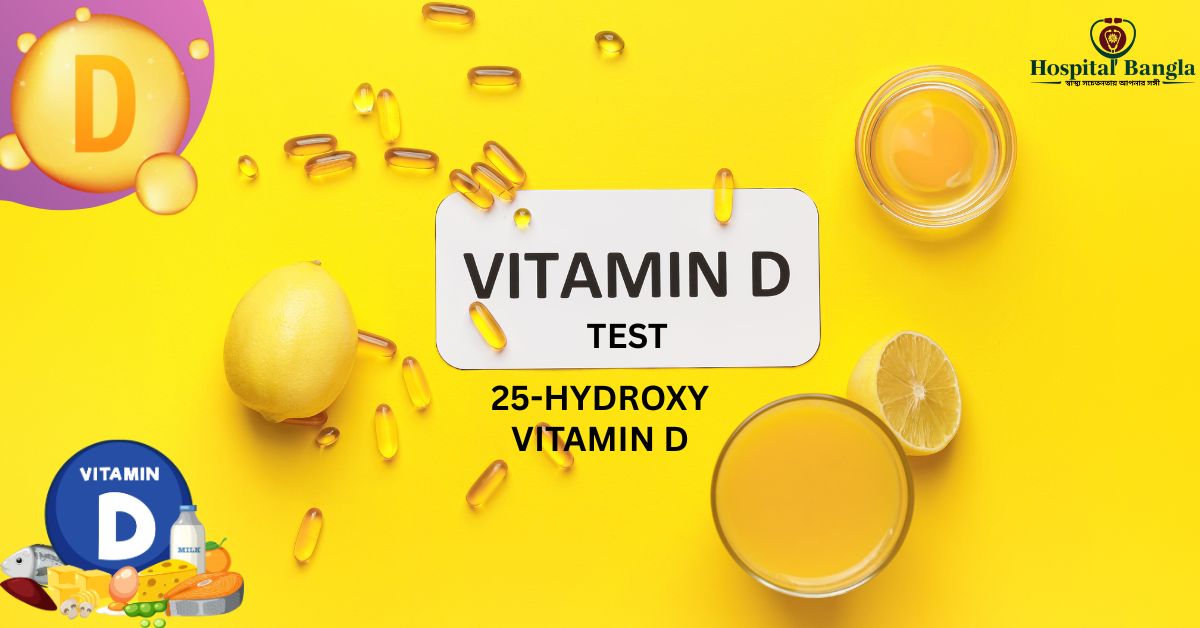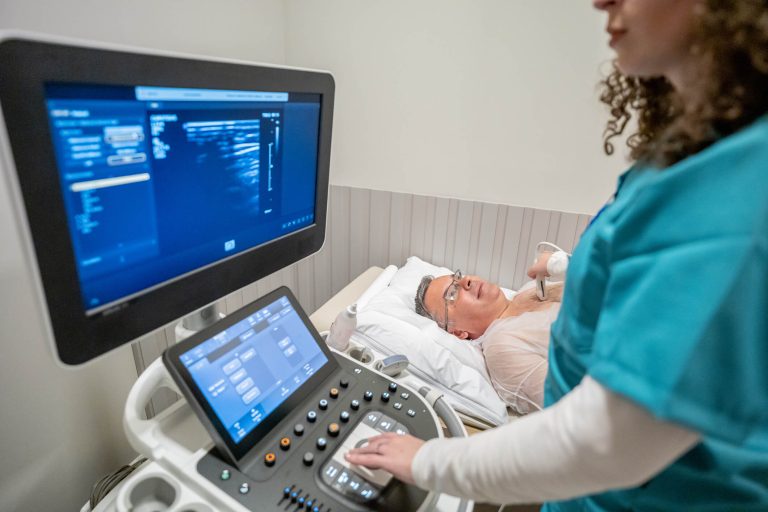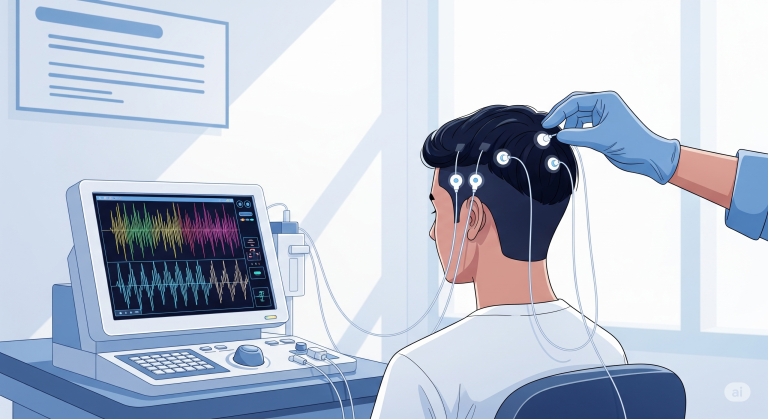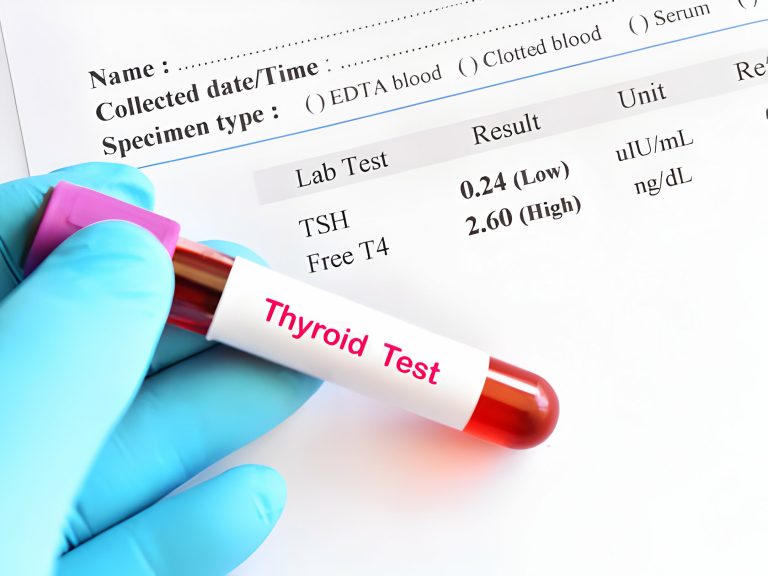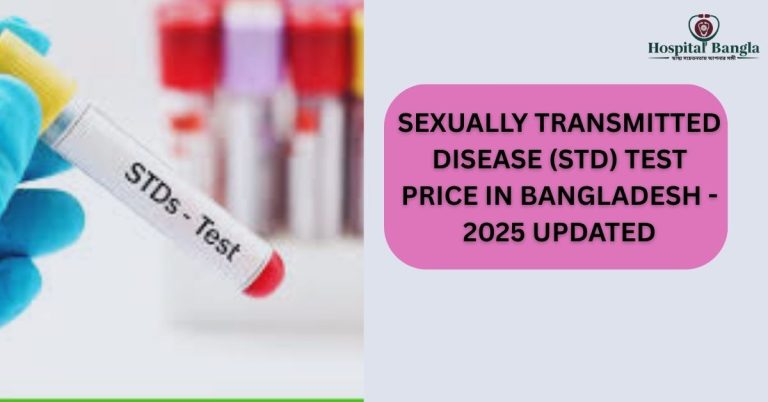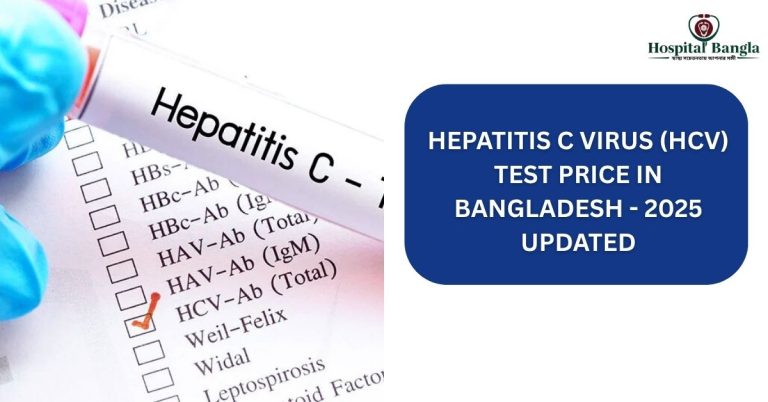Vitamin D Test Price in Bangladesh: 2025 Updated
Vitamin D is essential for maintaining healthy bones, muscles, and a robust immune system. A Vitamin D Test, also known as the 25-hydroxy vitamin D test, measures the level of vitamin D in your blood to determine if you have a deficiency or excess. In Bangladesh, where vitamin D deficiency is common due to limited sun exposure and dietary habits, this test is increasingly important. The Vitamin D Test price in Bangladesh typically ranges from 2250 to 3250 BDT in private facilities, depending on the diagnostic center or hospital. This article provides a detailed guide to the Vitamin D Test, including its purpose, when it’s needed, preparation, and a comprehensive price comparison across hospitals in Bangladesh for 2025.
What is a Vitamin D Test?
The Vitamin D Test, specifically the 25-hydroxy vitamin D test, is a blood test that measures the level of 25-hydroxyvitamin D in your blood. This form of vitamin D is the best indicator of your body’s vitamin D status, as it reflects the amount stored in your system. Vitamin D is crucial for calcium absorption, which supports bone health, and it also plays a role in muscle function, immune system regulation, and reducing inflammation. Deficiency can lead to serious conditions like osteoporosis (brittle bones), rickets (bone malformation in children), and increased risk of fractures. It’s also linked to fatigue, muscle weakness, and a higher susceptibility to infections.
Alternative names for the test include:
- 25-hydroxy vitamin D test
- 25(OH)D test
- Calcidiol test
- Vitamin D2 test
- Vitamin D3 test
The test is highly reliable when performed at accredited laboratories, making it a key tool for assessing vitamin D status.
When is a Vitamin D Test Recommended?
A Vitamin D Test is recommended if you show symptoms of deficiency or belong to a high-risk group. Doctors may order the test for:
- Symptoms of deficiency: Bone pain, muscle weakness, fatigue, frequent infections, or mood changes like depression.
- High-risk groups:
- Older adults, as vitamin D production decreases with age.
- Individuals with limited sun exposure, such as those who work indoors or wear full-body clothing.
- People with darker skin, as melanin reduces vitamin D synthesis.
- Obese individuals, since vitamin D is stored in fat cells, reducing its availability.
- Those with conditions like Crohn’s disease or celiac disease, which impair nutrient absorption.
- Pregnant women, as deficiency can affect fetal development.
The test is used for:
- Diagnosis: To confirm if symptoms are due to low vitamin D levels.
- Screening: For high-risk individuals, even without symptoms.
- Monitoring: To check the effectiveness of vitamin D supplementation in those being treated for deficiency.
In rare cases, the test may also detect vitamin D toxicity from excessive supplementation, though this is uncommon.
Vitamin D Test Preparation
No special preparation is typically required for a Vitamin D Test. Fasting is not necessary, but you should follow any specific instructions from your healthcare provider or diagnostic center. The test involves a simple blood draw, usually from a vein in your arm, which takes only a few minutes. Inform your doctor about any medications or supplements, especially vitamin D supplements, as they may affect the results. The procedure is quick, with minimal discomfort, though some may experience slight bruising at the blood draw site.
Vitamin D Test Price List in Government Hospitals in Bangladesh
Government hospitals in Bangladesh generally offer diagnostic tests at lower costs than private facilities, making them an affordable option for many. However, specific prices for the Vitamin D Test are not widely available online, as government hospitals often do not publish detailed price lists. Based on general trends, prices in government hospitals are likely lower than in private facilities, potentially ranging from 1000 to 2000 BDT. For accurate and up-to-date pricing, it’s best to contact the hospitals directly. Below is a list of major government hospitals where you can inquire about the Vitamin D Test price in 2025:
| Hospital Name | Location | Contact Number |
|---|---|---|
| Dhaka Medical College Hospital | Dhaka | 02-22302300 |
| Bangabandhu Sheikh Mujib Medical University | Dhaka | 02-22302300 |
| Chittagong Medical College Hospital | Chittagong | 031-2832222 |
| Rajshahi Medical College Hospital | Rajshahi | 0721-750000 |
| Sir Salimullah Medical College Mitford Hospital | Dhaka | 02-22352222 |
| Sylhet MAG Osmani Medical College Hospital | Sylhet | 0821-717100 |
| Mymensingh Medical College Hospital | Mymensingh | 091-66063 |
Vitamin D Test Price List in Private Hospitals in Bangladesh
Private hospitals and diagnostic centers in Bangladesh provide more transparent pricing for the Vitamin D Test, with costs typically higher than in government facilities. Below is a list of private facilities offering the Vitamin D Test, based on available data for 2025. Note that some prices may reflect discounts or specific test variations (e.g., 25-OH Vitamin D):
| Hospital/Diagnostic Center | Location | Vitamin D Test Price (BDT) | Contact Number |
|---|---|---|---|
| icddr,b Lab Services | Dhaka | 2940 | 02 222277038, 02 222277138 |
| Thyrocare Bangladesh Limited | Dhaka | 3250 | +8809666737373 |
| Oncos Molbiol | Dhaka | 3000 | +880-2-7920405 |
| Ibn Sina Diagnostic & Imaging Centre | Dhaka | 2250 (with 25% discount, 2022 price) | Not provided |
| Square Hospital | Dhaka | Not available online | +8809610010616 |
| Labaid Diagnostics Center | Dhaka | Not available online | 9667175, 01914 378 371 |
| Popular Diagnostic Centre Ltd. | Dhaka | Not available online | 09666 787801 |
| United Hospital | Dhaka | Not available online | 02-222262246 |
| Evercare Hospital Dhaka | Dhaka | Not available online | 02-222291191 |
| National Heart Foundation | Dhaka | Not available online | 02-58313145 |
Understanding Vitamin D Test Results
The normal range for 25-hydroxy vitamin D levels is typically 20–50 ng/mL, though this may vary slightly by laboratory. Here’s what the results mean:
- Deficiency (<20 ng/mL): Indicates low vitamin D levels, increasing the risk of bone disorders, muscle weakness, and fatigue.
- Insufficiency (20–30 ng/mL): Suggests suboptimal levels, which may cause mild symptoms like low energy or mood changes.
- Normal (30–50 ng/mL): Reflects adequate vitamin D levels for most people.
- Toxicity (>100 ng/mL): Rare, but high levels can cause nausea, vomiting, or kidney issues.
Factors that may affect results:
- Recent sun exposure, which boosts vitamin D production.
- Vitamin D supplementation, which can elevate levels.
- Medical conditions like liver or kidney disease, which impair vitamin D metabolism.
- Certain medications that affect vitamin D absorption.
If your results are abnormal, consult your doctor for further evaluation or treatment, such as supplementation for deficiency or dose adjustment for toxicity.
Frequently Asked Questions
How accurate is the Vitamin D Test?
The Vitamin D Test is highly accurate when performed at accredited laboratories, though results may vary slightly due to differences in testing methods. Choosing a reputable diagnostic center ensures reliable results.
How long does it take to get the results?
Results are typically available within 1–2 days, depending on the laboratory’s processing time and whether additional tests are conducted.
Is the test covered by insurance?
Insurance coverage varies by provider. Some plans may cover the test if it’s medically necessary, so check with your insurer for details.
How often should I get tested for vitamin D?
Testing frequency depends on your risk factors and doctor’s advice. High-risk individuals, such as those with limited sun exposure, may need annual testing.
What’s the difference between vitamin D2 and D3 tests?
The standard Vitamin D Test measures total 25-hydroxy vitamin D, including both D2 and D3 forms. Separate tests for D2 or D3 are rarely needed but can be performed if specified.
Can I take vitamin D supplements before the test?
Inform your doctor about any supplements, as they may elevate your vitamin D levels and affect results. Your doctor may recommend pausing supplements before the test.
Are there any risks associated with the test?
The test is a simple blood draw with minimal risks, such as slight bruising or, rarely, infection at the puncture site. Serious complications are uncommon.
Conclusion
The Vitamin D Test is a vital tool for assessing your vitamin D status, which is essential for bone health, muscle function, and immune system support. In Bangladesh, where deficiency is common, this test helps diagnose issues, monitor treatment, and guide supplementation. The Vitamin D Test price in Bangladesh varies, with private facilities charging 2250–3250 BDT, while government hospitals likely offer lower rates. Comparing prices and choosing a reputable diagnostic center ensures accurate results and value for money. Always consult your healthcare provider to determine if this test is right for you and to interpret your results. For the latest pricing and updates.

